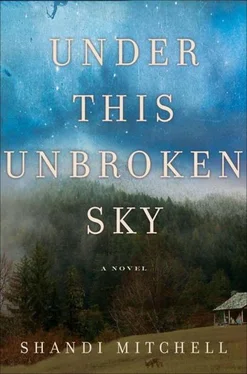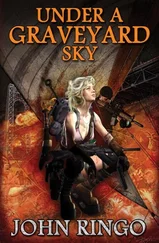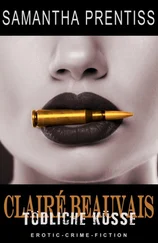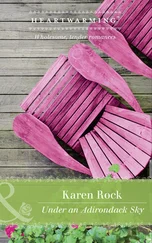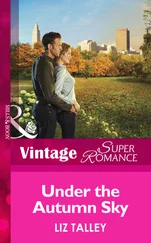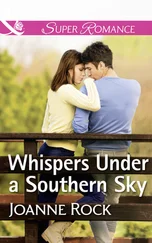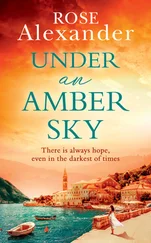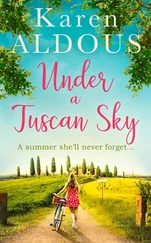Back then, Teodor thought that the barn, the house, the furrows in the earth, the wood he cut, the well he dug, the fences he drove, the wheat he sowed… he thought they were enough to keep him safe. He didn’t know he was the rabbit.
Teodor heads to the tack room and opens the side door that faces onto the paddock. He whistles sharply through his teeth and the horse’s ears prick up. It looks curiously to the barn. Teodor lifts the halter to the sky and whistles again. The horse ambles over. It hesitates a few feet from Teodor and sniffs the air, turns its head slightly sideways so it can see the man with a full eye. Teodor offers his hand and the horse breathes in his scent. Teodor turns into the barn and the horse follows at his elbow. It goes to the feed trough and snorts softly. It’s thinner than Teodor remembers.
Teodor dips his hand in the feedbag and comes up with a meager offering of poor-quality oats, husk, and dust. The horse nuzzles his hand, its soft nose brushes his palm as it hungrily chomps at the food. Teodor runs his other hand down its neck. The horse is old, but it’s strong. Its legs are straight, its chest wide. Teodor takes hold of its fetlock and squeezes softly. The horse lifts its leg. The hoof is neatly clipped and clean. The shoe is in good shape. Teodor pats the horse on the haunches. “Eat up, old boy, we have work to do.” The horse flicks its tail, reveling in the extra breakfast ration.
The iron plow weighs almost a hundred pounds. Ordinarily, Teodor would grasp the plow under the handles and cradle the support beams that connected the blade, then hoist it up onto the cart. But today, when he tries to lift it in place, he can barely raise it from the ground. He heaves, leans backward, his legs and back straining, and staggers closer to the cart. He manages to hook the front end of the plow. Still supporting its weight on his chest, he inches back to the handles. His arms tremble as he struggles to push it upward and forward. It scrapes ahead a few inches, precariously hooked on the edge of the wagon. It shifts backward.
Teodor struggles to keep his knees from buckling as his arms drop from the weight. He twists his body under the crossbeams and uses his back as a fulcrum. His new boots slide in the straw and dirt as he labors to push it up and in. Sweat beads on his forehead. Wet splotches appear on his clean shirt. His muscles scream. The wooden struts dig into his hands. Another foot to go. He gasps for air, unable to move forward, unable to retreat.
Myron buttons up his coat on the way to the barn. His untied shoelaces trail after him in the mud. A few minutes ago, he got up to stoke the fire and saw that his father was already gone and that he had missed the dawn. A farmer always gets up at dawn. He refused Maria’s admonishments to eat as he rushed out the door. He is combing his hair with his fingers as he enters the barn. He stops short at the sight of his father.
Teodor strains with his entire body; his face racked with pain, he heaves the plow the final few inches onto the cart. His hand pinned under the handle, it scrapes along the wooden slats. He yanks it back and the knuckles are already bleeding. His legs shake as he leans heavily on the side of the box.
Myron steps away from the door and tucks in against the wall. He waits a few moments, uncertain what to do, then quietly retraces his steps back ten feet. He counts another ten and then coughs, loudly, before slowly walking to the barn door. Teodor stands tall and straight, his injured hand hidden in his pocket. Myron lowers his head and stares at his father’s boots, the toes now scuffed, bits of straw stick out from the heel caked in horse shit. “I slept in.”
“You won’t again.” Teodor ignores his throbbing hand. “Harness up the horse, I’ll get the pickax and shovel.” Teodor walks to the tack room with slow, measured steps. When he is out of sight of his son, he leans against the wall and fights down the waves of nausea.
Myron slips the wooden collar around the horse’s neck. He checks the fit, making sure there will be no chafing. He retrieves the harness from the wall, taking the sixty-pound weight easily onto his shoulder. The horse doesn’t shy as the harness slides over his rump onto his back and shoulders. Myron checks and rechecks every strap and buckle. Then he gently inserts the iron bit into the horse’s mouth and lifts the bridle over its ears. “Good boy,” he whispers as he fastens the last straps.
“You can back him up.” Teodor enters as if he hasn’t been watching his son’s adeptness. “I’ll lift the shafts.” He heads for the cart, hoping his body won’t betray him. Myron intercepts him and easily hoists up the long wooden poles, tilting back the cart and plow. Myron whistles softly. “Back up.” The horse backs himself between the shafts. The boy and horse patiently wait, downplaying their new trick. Teodor nods slightly and hitches up the chains. It is enough of a nod for Myron to lower his head to hide his smile.
The animal seems to have grown a hand taller and has regained the brashness of a young stallion. It snorts and paws the earth, excited that something is about to happen. Teodor tosses the tools in the cart and hops on the front board. He takes the lines from Myron; they are soft and supple in his hands. Tch-tch-tch , he clicks his tongue, and the horse steps forward. The wooden wheels groan. The horse lowers its rump, digs in its hindquarters, and pulls. The cart lurches forward. Myron jumps on the back as it rolls out of the barn. “Haw.” Teodor turns toward the fields. The horse prances as if on parade.
“Wait for me!” Ivan races out of the shack, hugging a gallon jug of water wrapped in sopped burlap. Myron grabs the jug. Ivan chases after the cart, his hand outstretched. “Me!” he pleads.
Myron turns away.
MARIA THRUSTS THE SHOVEL INTO THE EARTH. IT SLICES in smoothly. She turns the soil over, revealing a rich decay of loam, choking with worms. This year she will grow enough food for everyone to have seconds and even thirds. She will plant successively and harvest from early summer through late fall. The wheat will build their house, buy supplies, livestock, machinery, material for clothes, and pay their debt, but this garden will feed her family.
She broke the ground for the vegetable garden the previous spring, sixty feet long by forty feet wide. A portion had been Anna’s original garden, but it had been abandoned to choke on weeds. Maria organized her children, and turned the dirt, one spadeful at a time. They pulled what rocks and roots they could and planted late, knowing that the soil wasn’t ready, knowing the season would be too short, but also knowing that without a harvest they would starve. Maria had vowed that when Teodor returned from prison, his family would be alive and well.
Last fall, no vegetable, however bruised, insect-ridden, or rotten, got discarded. The remains of the meager crop were composted back into the soil. Twenty wheelbarrows of horse and cow manure were forked into the soil. Six bundles of hay were strewn overtop. This year Maria will have a proper garden.
Seeds she carefully stored the previous fall are brought out from under her bed. An array of glass jars holding dried peas and beans; newspaper packets containing myriad tiny seeds alphabetized from beets to turnips; onions and garlic bulbs packed in wooden crates; potatoes in burlap bags, their blanched tendrils protruding—each is laid ceremoniously on the table. All her riches can be carried in the folds of her apron.
She plants them all. Row upon row, on her hands and knees, she gives each seed to the earth. She brushes the smaller seeds from her palm to her fingertips, carefully spacing them, trying not to lose any to the wind.
Now that school is out until after fall harvest, the children are all free to work. Dania follows behind her mother, brushing the dirt back up and over into supple mounds, gently closing the wound where the seeds are inserted. Onions, radishes, and parsley are planted beside cabbage and lettuce. Peas are followed by carrots and beets; tomatoes next to beans; cucumbers and squash next to potatoes.
Читать дальше
